
Meghan Rosen
Staff Writer, Biological Sciences, Science News
Meghan Rosen is a staff writer who reports on the life sciences for Science News. She earned a Ph.D. in biochemistry and molecular biology with an emphasis in biotechnology from the University of California, Davis, and later graduated from the science communication program at UC Santa Cruz. Her work has appeared in Wired, Science, and The Washington Post, among other outlets. Once for McSweeney’s, she wrote about her kids’ habit of handing her trash, a story that still makes her (and them) laugh.

All Stories by Meghan Rosen
-
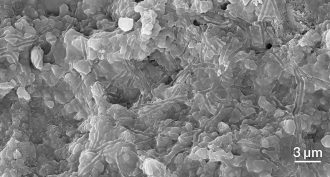 Earth
EarthBubbles may have sheltered Earth’s early life
For Earth’s earliest inhabitants, a bubble on the beach would have been the next best thing to a safety blanket.
-
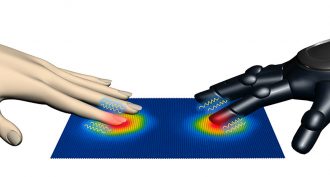 Tech
TechNew e-skin feels heat, textures and more
Two new developments in electronic “skin” hold promise for making prosthetic devices that can provide a better sense of touch. One gets its great sensitivity from being modeled on the human fingertip.
-
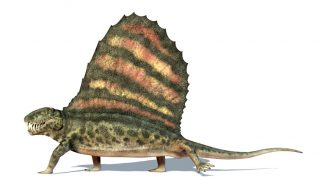 Fossils
FossilsThis prehistoric meat eater preferred surf to turf
For years, paleontologists thought the fierce, sharp-toothed Dimetrodon made a meal of land-based plant eaters. Not anymore. New fossils suggest aquatic animals were its meals of choice.
-
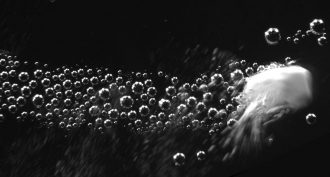 Health & Medicine
Health & MedicineThese bubbles treat wounds
New research shows bubble-powered drugs can travel upstream, against the flow of blood, to seal wounds shut.
-
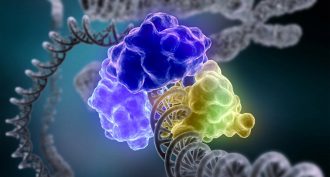 Chemistry
ChemistryTrio gets chemistry Nobel for figuring out DNA repair
Three researchers have won the 2015 Nobel Prize in chemistry for working out how cells fix damaged genetic material.
-
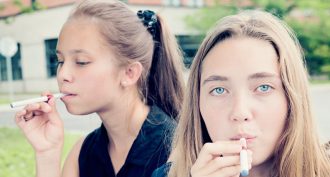 Health & Medicine
Health & MedicineVaping can lead to teen smoking, new study finds
A study in L.A. high school students finds that those who vape are much more likely than those who don’t to eventually take up smoking cigarettes.
-
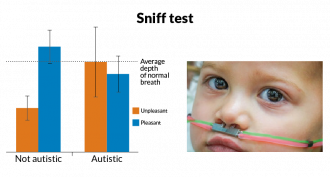 Brain
BrainSmell test may detect autism
A new study finds that kids with autism sniff foul scents for as long as pleasing ones. The finding could lead to a test to diagnose the disorder.
-
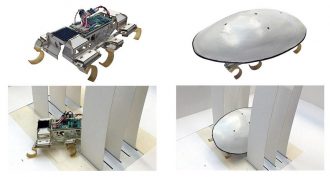 Tech
TechRobo-roach squeezes through tight spaces
An arched shell helps a new cockroach-inspired robot move through an obstacle course with relative ease.
-
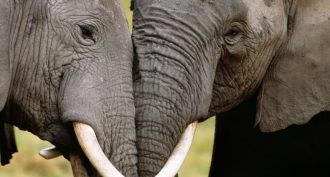 Genetics
GeneticsDNA in ivory pinpoints elephant poaching hot spots
Thousands of elephants have been killed for their ivory tusks. A new study used DNA in ivory to trace where most of the killings happen.
-
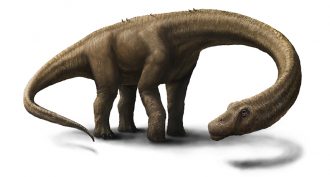 Fossils
FossilsNew analysis halves massive dino’s weight
No question about it, Dreadnoughtus schrani was enormous. But a new estimate concludes this dino weighed just half as much as first thought.
-
 Animals
AnimalsPicture This: The real ‘early bird’
Long before dinosaurs went extinct, birds were emerging on Earth. These hummingbird-size wading birds are the earliest known ancestors of today’s birds.
-
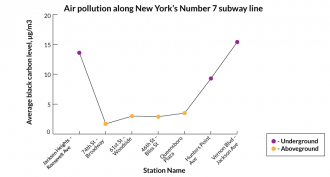 Environment
EnvironmentSoot fouls subway stations — and maybe lungs
Soot levels in stations for New York City’s electric subway trains exceed the levels outdoors, a new study finds. The underground source of this black carbon: maintenance trains that share the tracks with subway trains. Breathing soot can aggravate asthma and other lung disease.